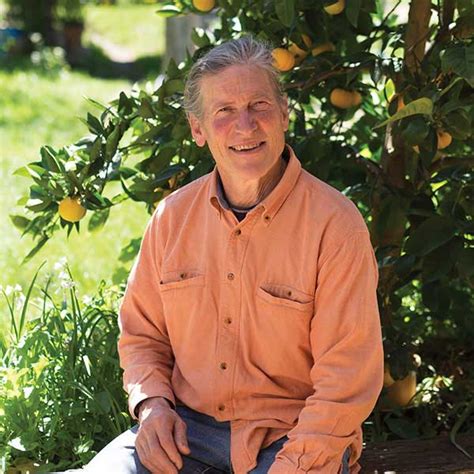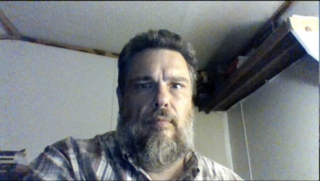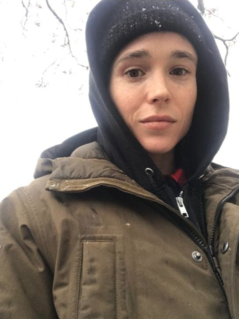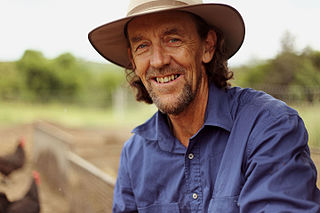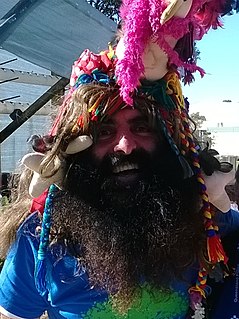Top 31 Permaculture Quotes & Sayings
Explore popular Permaculture quotes.
Last updated on April 14, 2025.
Permaculture principles focus on thoughtful designs for small-scale intensive systems which are labor efficient and which use biological resources instead of fossil fuels. Designs stress ecological connections and closed energy and material loops. The core of permaculture is design and the working relationships and connections between all things.
I’m going to argue here that the most accurate and least muddled way to think of permaculture is as a design approach, and that we are often misdirected by the fact that it fits into a larger philosophy and movement which it supports. But it is not that philosophy or movement. It is a design approach for realizing a new paradigm.
Permaculture offers a radical approach to food production and urban renewal, water, energy and pollution. It integrates ecology, landscape, organic gardening, architecture and agro-forestry in creating a rich and sustainable way of living. It uses appropriate technology giving high yields for low energy inputs, achieving a resource of great diversity and stability. The design principles are equally applicable to both urban and rural dwellers
Our goal is not to assume leadership of existing institutions, but rather to render them irrelevant. We don't want to take over the state or change its policies. We want to render its laws unenforceable. We don't want to take over corporations and make them more 'socially responsible.' We want to build a counter-economy of open-source information, neighborhood garage manufacturing, permaculture, encrypted currency and mutual banks, leaving the corporations to die on the vine along with the state. We do not hope to reform the existing order. We intend to serve as its grave-diggers.
Permaculture is a design system for creating sustainable human environments...Permaculture uses the inherent qualities of plants and animals combined with the natural characteristics of landscapes and structures to produce a life supporting system for city and country, using the smallest practical area.
It’s a revolution. But it’s the sort of revolution that no one will notice. It might get a little shadier. Buildings might function better. You might have less money to earn because your food is all around you and you don’t have any energy costs. Giant amounts of money might be freed up in society so that we can provide for ourselves better. So it’s a revolution. But permaculture is anti-political. There is no room for politicians or administrators or priests. And there are no laws either. The only ethics we obey are: care of the earth, care of people, and reinvestment in those ends.
Permaculture is not the movement of sustainability and it is not the philosophy behind it; it is the problem-solving approach the movement and the philosophy can use to meet their goals and design a world in which human needs are met while enhancing the health of this miraculous planet that supports us.
The end result of the adoption of permaculture strategies in any country or region will be to dramatically reduce the area of the agricultural environment needed by the households and the settlements of people, and to release much of the landscape for the sole use of wildlife and for re-occupation by endemic flora.
Permaculture is the conscious design and maintenance of agriculturally productive ecosystems which have the diversity, stability, and resilience of natural ecosystems. It is the harmonious integration of landscape and people providing their food, energy, shelter and other material and non-material needs in a sustainable way. Without permanent agriculture there is no possibility of a stable social order.
National Permaculture Day is a chance to share thoughts, visions and lots of common sense ways that we can all make a positive difference to the world we live in. Its all about combining age old truths and skills with new and innovative thinking and technologies….people, plants and landscapes growing together, designing and nurturing a healthy community along the way.

